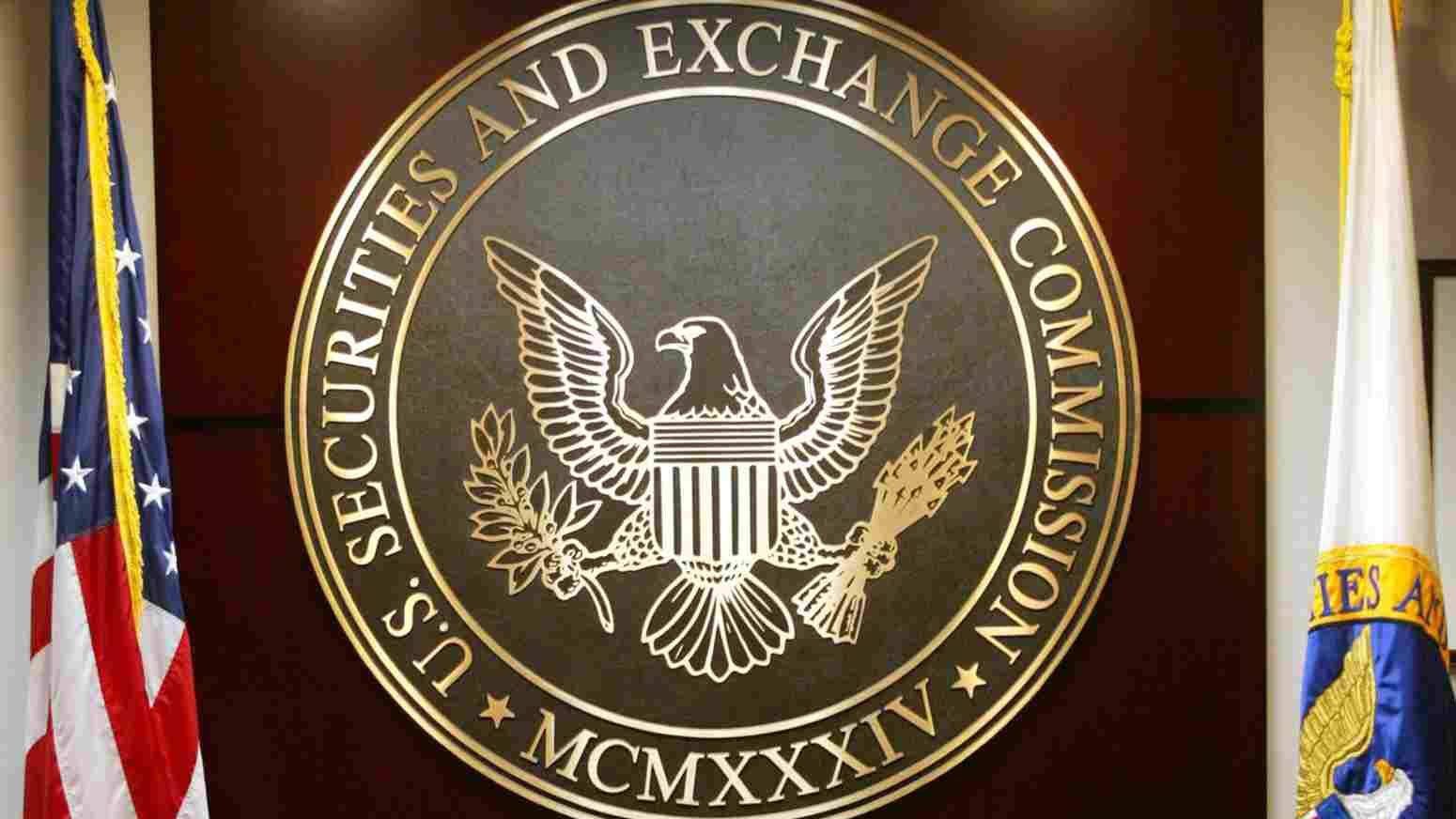

Tokens, Forwards, and the Illusion of Equity: What Republic's SpaceX Deal Tells Us About Modern Securities Innovation
Matt Levine’s latest Money Stuff column dissects a fascinating and increasingly common financial arrangement that blurs the line between traditional equity, tokenized instruments, and synthetic exposure: Republic’s tokenized forward tied to SpaceX stock.

SEC Reevaluates Controversial Market Surveillance Tool Amid Legal and Industry Pushback
In a move that signals regulatory recalibration, the Securities and Exchange Commission (SEC) has paused litigation surrounding its Consolidated Audit Trail (CAT) — a long-debated, market-wide surveillance system that has drawn growing criticism from investors, industry participants, and conservative watchdogs. The SEC’s pause suggests that the agency may be open to modifying or even scaling back one of the most ambitious trade monitoring initiatives in modern market history.

Judge Rejects SEC and Ripple’s Joint Bid to Reduce Fine and Vacate Injunction
In a striking rebuke to both a federal agency and a prominent digital asset firm, U.S. District Judge Analisa Torres has rejected a joint motion by the Securities and Exchange Commission (SEC) and Ripple Labs to finalize a reduced civil penalty and vacate a previously imposed injunction in their high-profile enforcement battle. The ruling underscores the limits of private settlement power in the face of final judicial determinations and reinforces the judiciary’s role in upholding statutory mandates — especially in cases involving violations of the federal securities laws.

Ripple and SEC Seek to Resolve Civil Penalty Dispute with $75M Release to Ripple
In a notable shift toward final resolution, Ripple Labs and the U.S. Securities and Exchange Commission (SEC) have jointly filed a motion in the U.S. District Court for the Southern District of New York seeking to modify the judgment in their long-standing enforcement matter and release funds held in escrow. Under the proposed stipulation, $125 million in civil penalties previously imposed on Ripple would be partially redistributed—$50 million paid to the SEC, with the remaining $75 million returned to Ripple.

SEC Chair Paul Atkins Announces Sweeping Cuts and Contract Reviews: What This Means for Market Regulation and Enforcement
In his first major address to the agency, newly appointed SEC Chair Paul Atkins informed staff this week that the U.S. Securities and Exchange Commission has experienced a 15% reduction in workforce, with more changes to come. The remarks, delivered during a town hall at SEC headquarters in Washington, D.C., mark a sharp pivot in tone and direction for the Commission under the Trump administration’s broader government downsizing initiative, led in part by billionaire adviser Elon Musk’s Department of Government Efficiency (DOGE).

Super Micro Subpoenaed by DOJ and SEC Following Short Seller Allegations: What This Means for AI Market Investors and Compliance Officers
San Jose-based Super Micro Computer, a prominent supplier of high-performance AI server hardware, disclosed this week that it has received subpoenas from both the U.S. Department of Justice (DOJ) and the Securities and Exchange Commission (SEC). The subpoenas, served in late 2024, are part of an apparent response to allegations first raised by the now-defunct short seller Hindenburg Research in August of last year.

FOIA Docs Show NY AG Wanted ETH Declared a Security
In a striking revelation from documents obtained through Coinbase’s Freedom of Information Act (FOIA) efforts, the New York Attorney General’s Office asked the Securities and Exchange Commission (SEC) in 2023 to declare Ether (ETH) a security in support of its lawsuit against crypto exchange KuCoin. The request, made during the tenure of former SEC Chair Gary Gensler, was ultimately declined.

SEC Unmasks $91M Ponzi Scheme in Texas: Three DFW Residents Charged in Sweeping Fraud Case
The Securities and Exchange Commission (SEC) has filed sweeping civil charges against three Dallas-Fort Worth (DFW) residents for orchestrating an alleged $91 million Ponzi scheme that defrauded over 200 investors. The defendants—Kenneth Alexander II, Robert D. Welsh, and Caedrynn E. Conner—now face allegations of violating the antifraud and registration provisions of federal securities laws through a complex network of deceptive investment vehicles.

Civitas Resources Faces Securities Class Action After 18% Stock Drop: What Investors and Public Companies Should Know
Civitas Resources, Inc. (NYSE: CIVI), a prominent player in the U.S. oil and gas sector, now finds itself at the center of a securities class action lawsuit following a sharp 18% decline in its stock price. The complaint, filed in the U.S. District Court for the District of New Jersey (captioned Lin v. Civitas Resources, Inc., et al., No. 25-cv-03791), alleges violations of Sections 10(b) and 20(a) of the Securities Exchange Act of 1934, spotlighting misstatements concerning production capabilities and capital expenditures.

The SEC’s Crypto Custody Roundtable: A Tipping Point for Regulatory Clarity or More Questions?
The Securities and Exchange Commission has released the full agenda and panel lineup for its April 25 roundtable, “Know Your Custodian: Key Considerations for Crypto Custody.” The speaker list is impressive—though, perhaps, it might have been even stronger had they invited me (a guy can dream, right?). Scheduled to take place at SEC headquarters in Washington, D.C., the event will bring together regulators, law firm partners, academics, and crypto-native custodians for what may prove to be the most consequential public dialogue on digital asset custody to date.

Paul Atkins Confirmed as SEC Chair Amid Rising Pressure to Act on Chinese Companies
On April 10, 2025, the U.S. Senate confirmed Paul Atkins as the next Chair of the Securities and Exchange Commission in a narrow 52-44 vote. During his confirmation process, Atkins faced tough questions about the agency’s recent reversals in crypto enforcement and the influence of the Trump administration on its priorities. But the most pointed pressure came from lawmakers demanding stronger action against Chinese companies listed on U.S. exchanges.

Courts, Not Regulators, May Shape Crypto Law — But That’s Not Necessarily a Bad Thing
As the SEC retreats from its aggressive crypto enforcement posture under former Chair Gary Gensler, observers have speculated that courts will now become the primary venue for resolving disputes over how federal securities laws apply to digital assets. But despite the headlines suggesting a flood of new litigation, we at Anderson P.C. are not convinced that such a surge is inevitable—or even problematic.

Conducting a Tokenized Offering Under Reg A
While there are multiple frameworks available to launch and distribute tokens—including those designed to avoid classification as securities—many of our clients elect to offer tokens as securities for strategic reasons. This can include unlocking broader investor participation, enabling secondary market liquidity, or building long-term institutional trust. Regulation A and Regulation Crowdfunding (Reg CF) are the two primary exemptions that allow for the public issuance of security tokens under U.S. law.

SEC Enforcement Lawyers Face Fallout as Crypto Industry Pushes Back
The ongoing battle between the SEC and the cryptocurrency industry has taken a new turn—not just in regulatory policy, but in the professional reputations of SEC enforcement attorneys. With the agency facing court setbacks and political shifts, some former SEC lawyers are struggling to find opportunities in private practice, particularly at firms engaged in crypto-related work. This dynamic raises fair questions on both sides—is this an unfair punishment for regulators who were doing their jobs, or is it a natural consequence of overzealous enforcement that left a lasting impact on the industry?

Acting SEC Chair Reshapes the Agency Ahead of Trump’s Pick
The Securities and Exchange Commission (SEC) is undergoing a profound transformation as its acting leadership reshapes the agency ahead of the confirmation of President Trump’s nominee, Paul Atkins. These sweeping changes include staffing reductions, leadership shake-ups, and a recalibration of enforcement priorities, raising questions about the future of securities regulation in the United States.

SEC Accuses Cannabis CFO of $4.2M Round-Trip Accounting Scheme: Industry Lessons
The U.S. Securities and Exchange Commission (SEC) has filed charges against the former CFO of Acreage Holdings, Glen Leibowitz, alleging his involvement in a $4.2 million round-trip transaction designed to manipulate the company’s year-end cash balance. This case underscores the increasing regulatory scrutiny cannabis companies face, particularly as they grapple with complex financial reporting obligations, banking restrictions, and compliance challenges.

SEC Backs Down on Ripple
In a major development for the cryptocurrency industry, the U.S. Securities and Exchange Commission (SEC) has ended its appeal against Ripple Labs regarding the legal status of the XRP token. This decision marks a significant shift in regulatory posture, reflecting broader changes in crypto oversight under the new administration.

SEC Crypto Enforcement Pauses in Select Matters; But Uncertainty Remains for Many
While major platforms like Coinbase and Binance breathe easier, countless other crypto market participants remain in the crosshairs of unresolved investigations. These businesses, builders, and innovators face the same murky regulatory waters, the same costly battles, and the same chilling uncertainty that the SEC now seems to acknowledge is problematic. So, why are they still left out in the cold?

SEC Announces Formation of Crypto Task Force 2.0
Acting Chairman Mark T. Uyeda of the U.S. Securities and Exchange Commission (SEC) announced the launch of a dedicated Crypto Task Force aimed at establishing a clear and comprehensive regulatory framework for crypto assets. Commissioner Hester Peirce will chair the task force, supported by Richard Gabbert as Chief of Staff and Taylor Asher as Chief Policy Advisor.

Coinbase Decision: A Landmark Ruling for Crypto
The recent decision in the Coinbase case represents a pivotal moment in the ongoing dialogue between cryptocurrency innovation and securities regulation. This ruling not only addresses foundational questions about the classification of digital assets but also provides critical insights into how courts may navigate the intersection of securities laws and emerging technologies. It underscores the importance of proactive compliance and thoughtful advocacy as the crypto industry adapts to an uncertain regulatory landscape.
